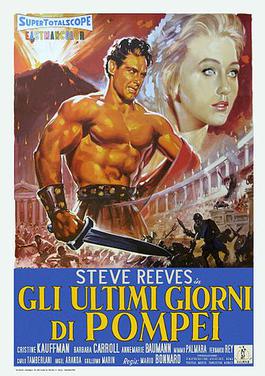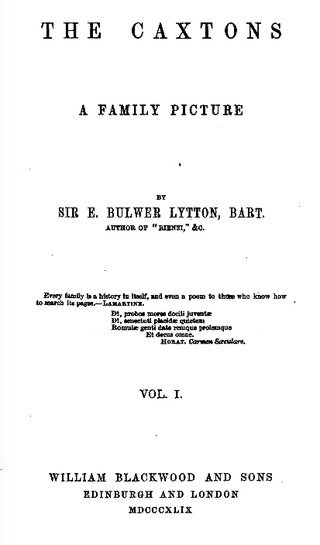
Edward George Earle Lytton Bulwer-Lytton, 1st Baron Lytton,, was an English writer and politician. He served as a Whig member of Parliament from 1831 to 1841 and a Conservative from 1851 to 1866. He was Secretary of State for the Colonies from June 1858 to June 1859, choosing Richard Clement Moody as founder of British Columbia. He was created Baron Lytton of Knebworth in 1866.

Edward Robert Lytton Bulwer-Lytton, 1st Earl of Lytton,, was an English statesman, Conservative politician and poet who used the pseudonym Owen Meredith. During his tenure as Viceroy of India between 1876 and 1880, Queen Victoria was proclaimed Empress of India. He served as British Ambassador to France from 1887 to 1891.

Earl of Lytton, in the County of Derby, is a title in the Peerage of the United Kingdom. It was created in 1880 for the diplomat and poet Robert Bulwer-Lytton, 2nd Baron Lytton. He was Viceroy of India from 1876 to 1880 and British Ambassador to France from 1887 to 1891. He was made Viscount Knebworth, of Knebworth in the County of Hertford, at the same time he was given the earldom, also in the Peerage of the United Kingdom.

Vril: The Power of the Coming Race, originally published as The Coming Race, is a novel by Edward Bulwer-Lytton, published anonymously in 1871.

"It was a dark and stormy night" is an often-mocked and parodied phrase considered to represent "the archetypal example of a florid, melodramatic style of fiction writing", also known as purple prose.

"Almighty dollar" is an idiom often used to satirize obsession with material wealth, or with capitalism in general. The phrase implies that money is a kind of deity.

Victor Alexander George Robert Bulwer-Lytton, 2nd Earl of Lytton,, styled Viscount Knebworth from 1880 to 1891, was a British politician and colonial administrator. He served as Governor of Bengal between 1922 and 1927 and was briefly Acting Viceroy of India in 1926. He headed the Lytton Commission for the League of Nations in 1931–1932, producing the Lytton Report which condemned the Japanese invasion of Manchuria and denounced Manchukuo as a Japanese puppet state.

Edith Penelope Mary Lutyens was a British author who is principally known for her biographical works on the philosopher Jiddu Krishnamurti.

Baron Wentworth is a title in the Peerage of England. It was created in 1529 for Thomas Wentworth, who was also de jure sixth Baron le Despencer of the 1387 creation. The title was created by writ, which means that it can descend via female lines.

Henry Fromanteel Lytton Cobbold, 3rd Baron Cobbold, is a British screenwriter. He is the current occupant of Knebworth House in Hertfordshire, England.

Anna Wheeler, also known by her maiden name of Anna Doyle, was an Irish born British writer and advocate of political rights for women and the benefits of contraception. She married Francis Massey Wheeler when she was "about 16" and he was "about 19", although the year is not known. They separated twelve years later. After his death she supplemented her income by translating the works of French philosophers.

The Mysteries of London is a "penny blood" or city mysteries novel begun by George W. M. Reynolds in 1844. Recent scholarship has uncovered that it "was almost certainly the most widely read single work of fiction in mid-nineteenth century Britain, and attracted more readers than did the novels of Dickens, Bulwer-Lytton or Trollope." There are many plots in the story, but the overarching purpose is to reveal different facets of life in London, from its seedy underbelly to its over-indulgent and corrupt aristocrats. Reynolds wrote the first two series of this long-running narrative. Thomas Miller wrote the third series and Edward L. Blanchard wrote the fourth series of this immensely popular title.

The Last Days of Pompeii is a 1959 Eastmancolor historical disaster action film starring Steve Reeves, Christine Kaufmann, and Fernando Rey and directed by Mario Bonnard and Sergio Leone. Bonnard, the original director, fell ill on the first day of shooting, so Leone and the scriptwriters finished the film.

Rosina Bulwer-Lytton, Baroness Lytton, was an Anglo-Irish writer who published fourteen novels, a volume of essays, and a volume of letters.

John Richardson Auldjo, FRS, FRGS, was a Canadian-British traveller, geologist, writer and artist. He was British Consul at Geneva. He was a close friend of Edward Bulwer-Lytton and a member of Sir William Gell's inner circle at Naples.

The Caxtons: A Family Picture is an 1849 Victorian novel by Edward Bulwer-Lytton that was popular in its time.

Godolphin is a satirical 19th-century romance novel by British writer Edward Bulwer-Lytton. It is about the life of an idealistic man, Percy Godolphin, and his eventual lover, Constance Vernon. Written as a frame narrative, Godolphin provides a satirical insight into the day-to-day lives of the early 19th-century British elite. The story is told through the narration of two protagonists, Percy Godolphin and Constance Vernon, as they rise to prominence among the London elite.
Frances Mary Peard was an English author and traveller who wrote over 40 works of fiction for children or adults between 1867 and 1909. Most were domestic novels or short-story volumes, often historical in nature and set abroad.
L'ebreo is an 1855 opera by Giuseppe Apolloni to a libretto by Antonio Boni adapted from Edward Bulwer-Lytton's novella Leila; or, The Siege of Granada of 1838. It premiered on 25 January 1855 at La Fenice, Venice.

Elizabeth Edith Balfour, Countess of Balfour was a British suffragette, politician, and writer. A staunch Conservative, she served as Dame President of the Woking Habitation of the Primrose League and was a founding member of the Conservative and Unionist Women's Franchise Association, serving as president of the association's chapter in Edinburgh. After the 1910 Conciliation Bill failed to pass in the House of Commons, she went on a speaking tour across the United Kingdom to rally support for women's suffrage. In 1919, Lady Balfour became the first woman to sit on the Woking Borough Council.


















